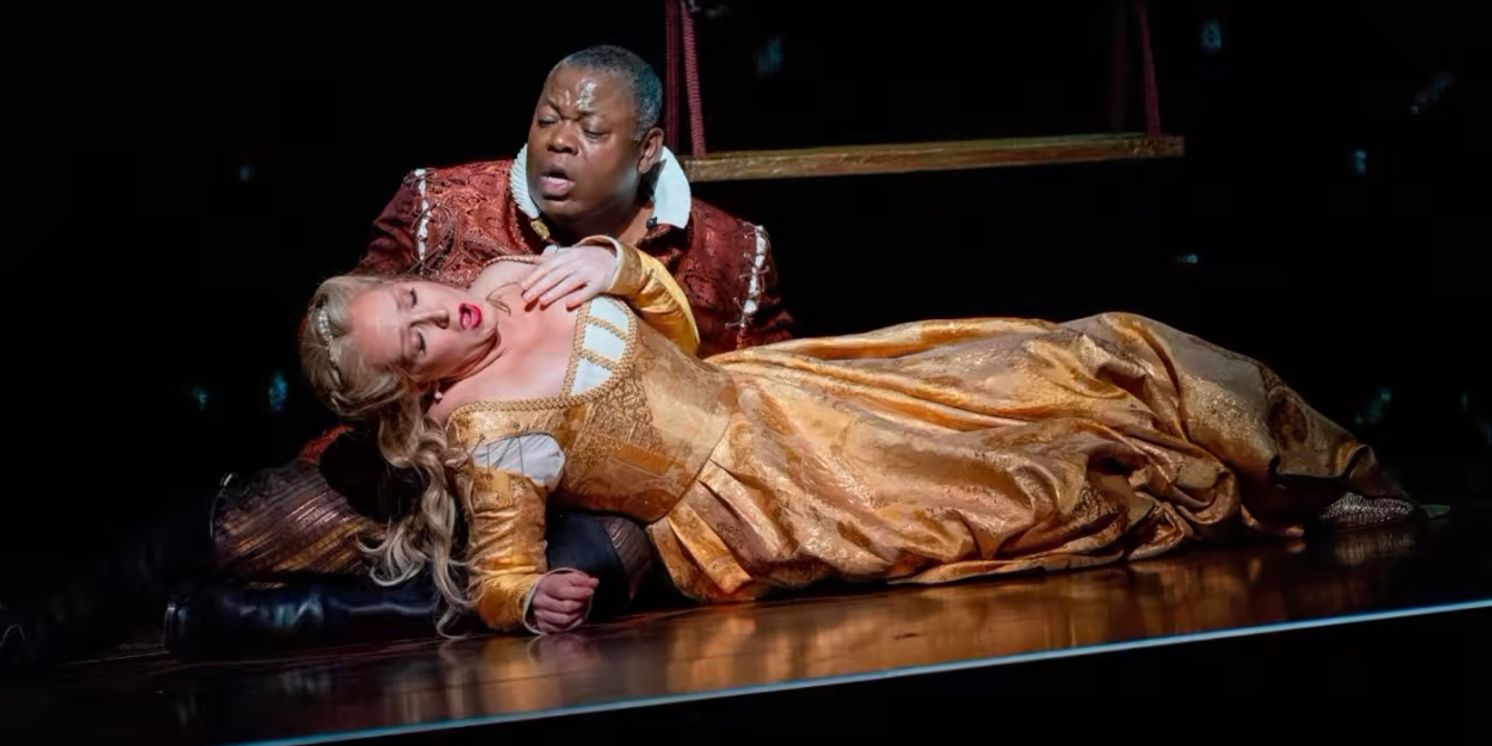Review: In Saint-Saens' HENRI VIII, the King Has the Title but the Queens Are in Charge at Bard Festival
Leon Botstein Shows There’s Operatic Life in the Tudors Beyond Donizetti in a Marvelous Production with Alfred Walker, Amanda Woodbury and Lindsay Ammann

Donizetti’s so-called “Tudor Trilogy”--ANNA BOLENA, MARIA STUARDA and ROBERTO DEVEREUX (aka, “the one about Elizabeth I”)--suddenly has some competition on British history. Oh, I’m not talking about Broadway’s SIX, which presents the wives of Henry the Eighth as if they were a girl group. No, we have to go back much further than that, to Camille Saint-Saens of SAMSON ET DELILA fame, and the only other of his 13 operas that’s picked up any traction in the 20th and 21st centuries: HENRI VIII ("Henry the Eighth" in French).
With a superb production conducted by the Maestro Botstein, who led a concert version of it in 2012 with his American Symphony Orchestra at the Bard Music Festival, it was directed with intimacy and thrills by Jean-Romain Vesperini. It was gorgeously designed by Bruno de Lavenere with projections by Studio AE and Christophe Chaupin’s lighting, and Alain Blanchot’s lavish costumes. Together with the singers they assembled and the fine Festival Chorale under James Bagwell, they brought out the best of the melodic piece--perhaps making it more interesting than what one could have hoped.
It tells the story of how Henry (the virile bass-baritone Alfred Walker) changed history and started down the road to a tale of many wives and the rise of the Church of England. Ostensibly, it was because he was in search of an heir but, well, he also had a pretty short attention span when it came to women.
True, Henry started and stayed with Catherine of Aragon (the wonderful Amanda Woodbury)--her parents were Ferdinand and Isabella of Christopher Columbus note--for two dozen years. Still, it was wife #2, Anne Boleyn (the earthy mezzo Lindsay Ammann), who followed and was the famous one of all the six wives. After all, she may not have produced a male heir during the short time it took till Henry lost interest, but she and Henry produced a pretty good alternative (though he didn't think so): Elizabeth I.
As with Donizetti’s knockout, fictional meeting between Elizabeth and Mary Stuart (via librettist Giuseppe Bardari’s take on Friedrich Schiller’s play, “Mary Stuart,” for MARIA STUARDA), Saint-Saens’ fine librettists, Leonce Detroyat and Paul-Armand Silvestre, arranged a fabricated rendezvous for Catherine and Anne. The writers had already imagined a passion between Anne and a Spanish diplomat, Don Gomez de Feria (an exciting performance from tenor Josh Lovell), so the, ahem, trumped up ending wasn’t a far reach. Boleyn may have been the technical winner of the match, but it was, indeed, only a technicality; Catherine won our hearts.
Indeed, the star of the piece, for me, was Woodbury’s Catherine, whose elegance in the role was quite staggeringly lovely, with pureness of sound and soul. It was a beautifully measured portrayal. Yes, Walker’s Henry got the dramatics right, start to finish, and was strong vocally at the start of the opera, but his voice took on a metallic quality about halfway through that made it hard to completely warm to the rest of his performance. Mezzo Ammann caught all the nuances of Boleyn, who couldn’t quite believe her luck in capturing Henry’s fancy and went overboard in her spoiled-girl reaction to it.
In other roles, bass Harold Wilson was polished as the Duke of Norfolk and another bass, Christian Zaremba, excelled as Cardinal Campeggio, the papal legate, who had a key scene with Henry, as he broke with the pope when he didn't receive the blessing to divorce Catherine.
Saint-Saens gave the chorus a particularly standout scene when they support the King’s break with Rome. With a running time near to four hours, one could hardly quibble about Botstein cutting the ballet, though the music surfaced notably in the lobby during the intermission, in an arrangement for a wind quintet.
I’m not sure HENRI VIII will replace any of the Donizettis in telling about this part of British history, but--as I found with Opera Nuovo’s performances a week earlier--it’s nice to know there are little-known operas from other centuries that still talk to us.
Shown: Alfred Walker and Lindsay Ammann
Photo by Stephanie Berger
Reader Reviews
Videos

